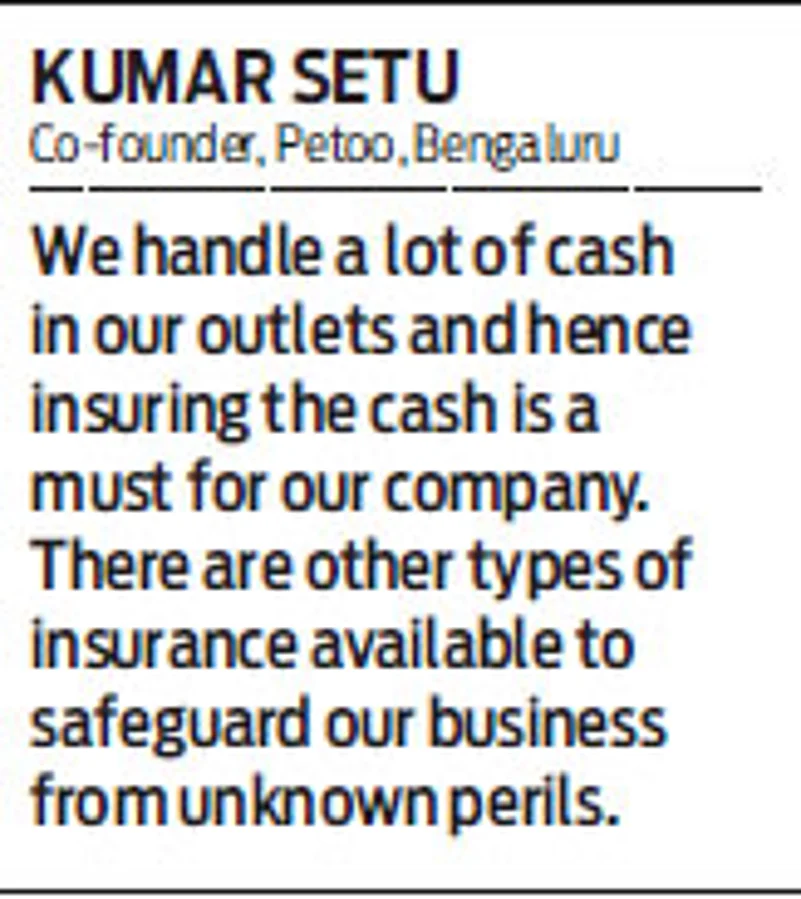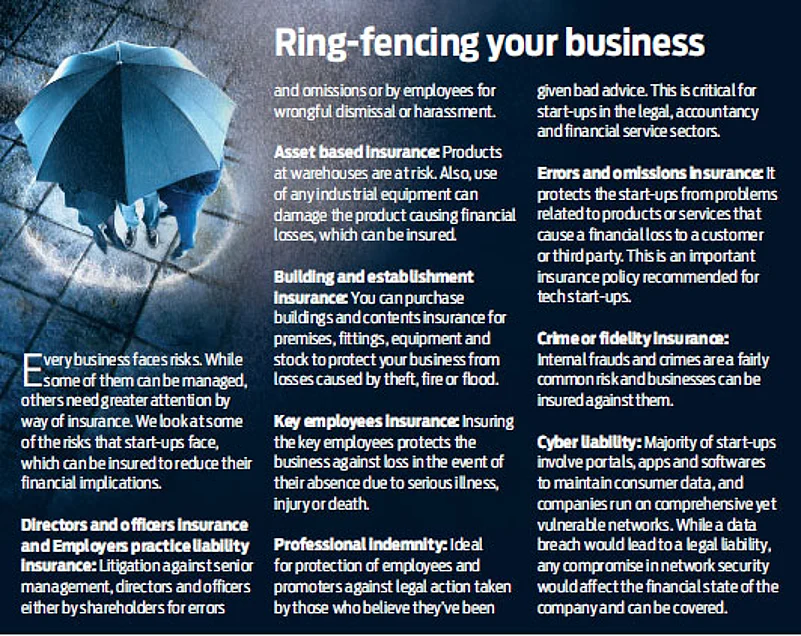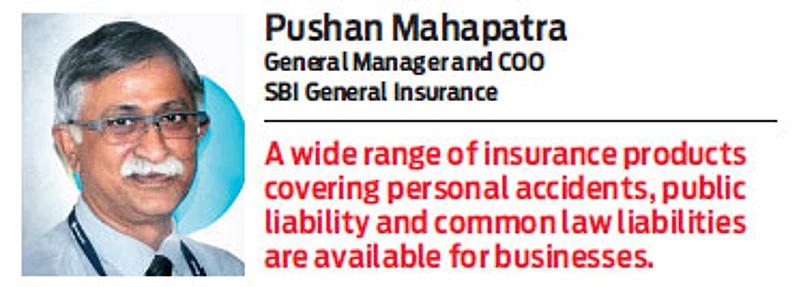Nasty surprises can wreak havoc for a business, especially for a startup. Take, for instance, a high-value shipment of an e-commerce company that

gets lost in transit or a week’s earnings collected from different centres being looted. All businesses are fraught with risk and it is no different for start-ups. In such cases, insurance provides a way out by insulating businesses so that they can deal with emergencies that would otherwise throw their growth process out of gear or even lead to their death.
While it does not feature in the priority list of most start-ups, the importance of insurance is significant. A start-up that does not have insurance is as much at risk as an individual who does not have health or life insurance. Insurance can protect a start-up from making losses on its assets, liabilities and human resource. If adequately insured, a start-up can take unexpected and nasty surprises in its stride with little or no financial damage and the business can continue on its growth path.

“Insurance also gets client confidence in your business as they know that a particular freak incident won’t put you out of business,” says Abhishek Rungta, CEO, Indus Net Technologies, a Kolkata-based web development and digital marketing company, and also a co-founder of Seeders, an angel fund and incubator for tech start-ups. There is a wide range of insurance covers available for businesses to ensure protection against any mishaps.
Mix ‘n’ match
Says Pushan Mahapatra, general manager and COO, SBI General Insurance; “Most insurers offer package policies for small size enterprises to cover their multiplicity of risk requirement under the business package policy.” One such example is the general liability insurance. “General liability provides financial protection for businesses in the event of lawsuits and claims. These may arise as a result of injuries or property damage connected with the business,” says Manu Jolly, CEO of Delhi-based Digiperform, a digital marketing training company.
Shipdesk is a start-up that provides online merchants with cloudbased shipping solutions. It covers all goods in transit by minimum liability insurance provided by courier companies. “But there is a growing demand by online merchants for covering the entire value of goods and hence we are in talks with insurance companies for designing custom-made plans,” says Lipjo Joseph, co-founder.
There are different kinds of insurance covers that cater to different needs of businesses, including startups, and the cost structure varies accordingly. Says M. Ravichandran, president-insurance, TATA AIG General Insurance: “The important points to be considered are adequate limit, right retention, coverage customised to the need and carved-out exclusions to make sure there are no gaps.” For instance, in case of Petoo, a Bengaluru-based start-up in the online restaurant space, which produces food centrally and sends it to distribution points, worker’s compensation insurance is a must. “Money insurance is a must for us as cash is handled at outlets and insurance covers any movements of cash from different outlets to our office,” says Kumar Setu, co-founder, Petoo.
Likewise, there is the key man insurance, which provides life cover to important members like the cofounders, and group and accidental medical insurance for workers. A similar cover is available for director and officers’ liability against any decisions taken by them.
With several new generation startups running their businesses on data and technology, any breach of security is a big cause of concern. For such companies, there is cyber liability insurance, which provides coverage if there is theft of both first- and third-party data. Says Jolly, “Since we are a digital marketing training company offering courses to different professions, data is the most significant component of the organisation and needs to be protected from any breach.”

Navigating the cover
Insurance needs will vary from one start-up to another. There are traditional risks that all start-ups will face and specific risks that a start-up can face depending on the nature of the business. “It all depends on what is critical for your business and what are the major risks your business, clients and employees are exposed to,” says Rungta.
Thinking that insurance is not a need and not going for it is one of the biggest mistakes start-ups make. Getting yourself insured for the various risks should be a top priority. Premium costs need to be considered while going for insurance but it is important to remember that such costs are a small component of the total cost to the company. A start-up is advised to get competitive quotes for the policies through professional insurance agents.

However, insurance policies are often complex and it is difficult to compare policies based on numbers. They come with several clauses and all of these come into action when you actually make a claim. Hence, it is recommended to take the services of a professional insurance advisor or broker.
Says Anuraag Kaul, wholetime director and principal officer, JK Risk Managers and Insurance Brokers, “The best way for start-ups to approach the insurance tangle is to look for a good insurance broker. Buying an insurance cover without taking due care will always land people in a soup.”
“Going through a broker helps one to take the right insurance cover and not just go for the cheapest one available,” says Jolly. The right protection not only guards your business from any nasty surprises, but also ensures a good night’s sleep. Get covered, now.
With Inputs from Aakar Rastogi































